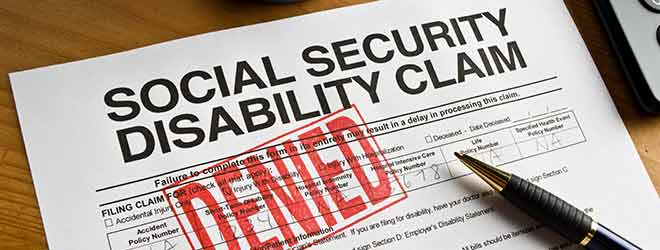
Distinct from, but often confused with, intellectual disabilities, learning disorders affect the ability of an individual to learn by either preventing retention of learned material, or through sensory input issues that result in difficulty reading or understanding taught material. Skills often affected by learning disabilities include reading, writing, listening, speaking, critical thinking, and mathematics. The severity of these disabilities differs based on the individual.
Learning Disorders and Social Security Disability
 Different individuals with learning disabilities have trouble in different areas, and no two learning disorders are exactly alike – some individuals develop skills to cope with the disability, while others do not. The Individuals with Disabilities Education Act (IDEA) defines a learning disability as “a disorder in one or more of the basic psychological processes involved in understanding or in using language, spoken or written, that may manifest itself in an imperfect ability to listen, think, speak, read, write, spell or do mathematical calculation, including conditions such as perceptual disabilities, brain injury, minimal brain dysfunction, dyslexia and developmental aphasia.”
Different individuals with learning disabilities have trouble in different areas, and no two learning disorders are exactly alike – some individuals develop skills to cope with the disability, while others do not. The Individuals with Disabilities Education Act (IDEA) defines a learning disability as “a disorder in one or more of the basic psychological processes involved in understanding or in using language, spoken or written, that may manifest itself in an imperfect ability to listen, think, speak, read, write, spell or do mathematical calculation, including conditions such as perceptual disabilities, brain injury, minimal brain dysfunction, dyslexia and developmental aphasia.”
Individuals with learning disabilities may experience one or more of the following problems: Trouble learning to spell, learning the alphabet, or with connection of letters to the sounds that they make, a form of the learning disorder commonly known as dyslexia; trouble reading aloud, also associated with dyslexia or other reading problems, but may also be an indication of undiagnosed eye trouble; trouble with reading comprehension; messy handwriting and trouble holding a pen, as an indication of fine motor impairment; limited vocabulary; trouble determining the order of steps while completing a task, or difficulty differentiating beginning and ending points; lack of understanding of the social conversation rules, such as talking over someone or invasion of personal space; and trouble with thought organization.
About one out of every five people are affected by some form of a learning disability, the primary difference being the severity of the disorder and the coping skills each individual has developed. Some people are so severely unable to learn that it affects their ability to work. According to the Social Security Administration, a child can be considered as disabled when they have a physical or mental impairment or combination of impairments that cause severe limitations. This is tested by a two-part test that determines how the child acts in a social setting and also how they communicate verbally, non-verbally, and how their imagination works.
Have You Been Denied Social Security Disability Insurance (SSDI)?
 If you or a loved one are applying for – or feel you have been wrongly denied – Social Security Disability insurance after a work-related injury, you may want to speak with a Rhode Island attorney regarding a potential claim. d’Oliveira & Associates RI Social Security Disability lawyers.
If you or a loved one are applying for – or feel you have been wrongly denied – Social Security Disability insurance after a work-related injury, you may want to speak with a Rhode Island attorney regarding a potential claim. d’Oliveira & Associates RI Social Security Disability lawyers.
Please contact the law offices of d’Oliveira & Associates at 1-800-992-6878 for a free legal consultation.


